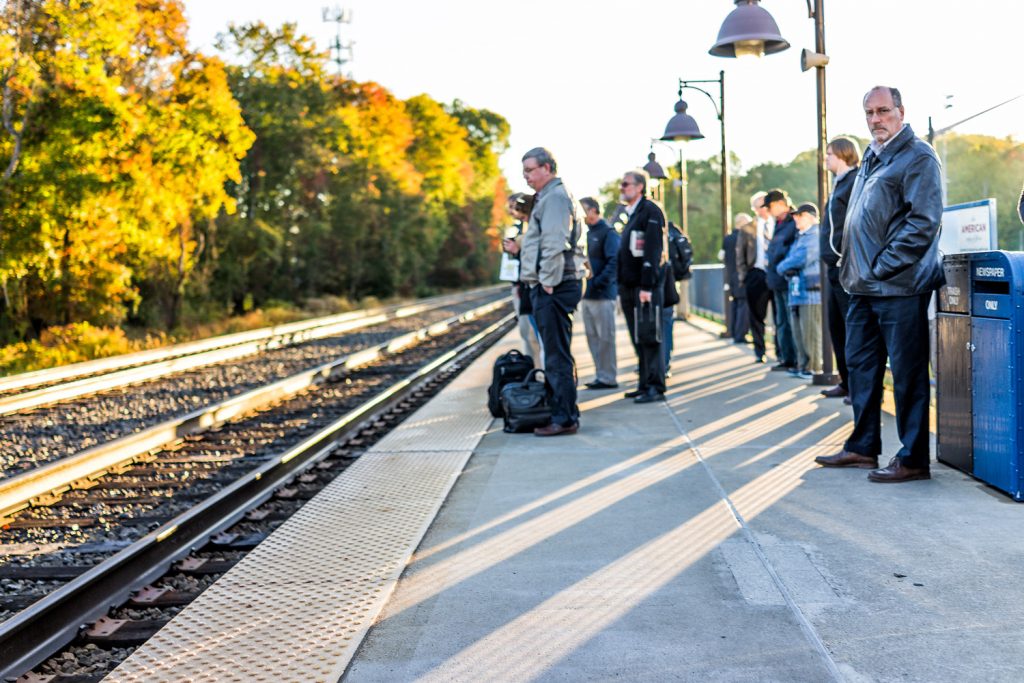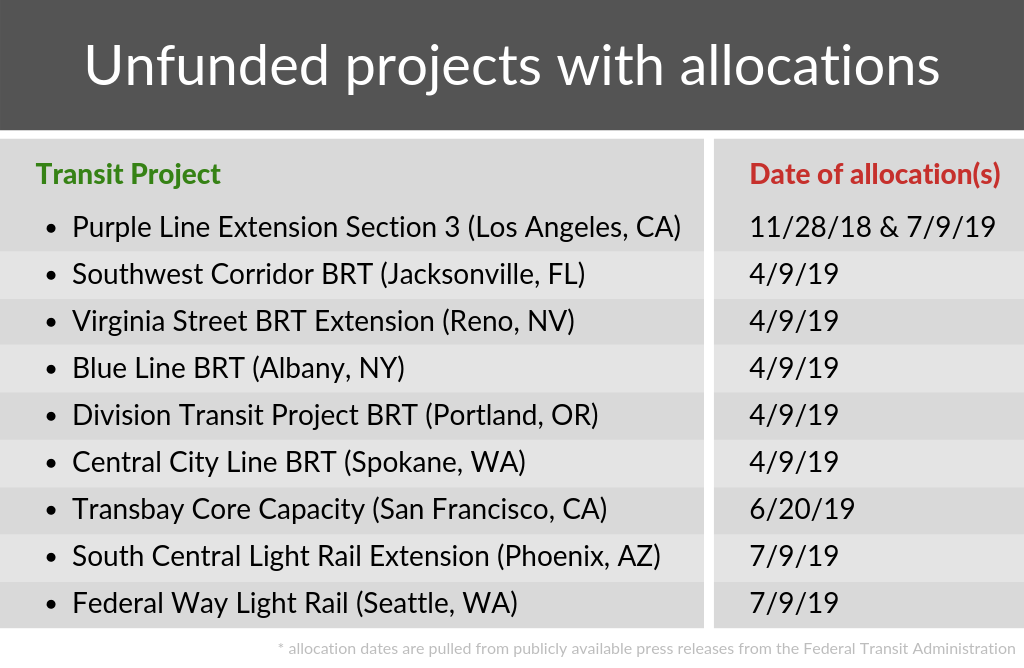

The U.S. Department of Transportation (USDOT) is refusing to obey the rules and Congress has so far been powerless to stop them. At stake are billions in federal funding for new and expanded transit systems that USDOT doesn’t want to award. But a policy change that attempts to reign in USDOT and make it obey the law could just be making matters worse.
Congress today has done its part to avert a government shutdown by passing a continuing resolution (CR) that will fund the federal government through November 21. The president has until Monday night to sign it. While a CR is generally just a continuation of existing policy, this one tweaks a key, but very wonky, policy for the Capital Investment Grant (CIG) program—the main source of federal funding for building new and expanding existing transit systems.
The CIG program has been under attack by the Trump administration, which is ideologically opposed to funding transit, since day one. Because Congress has continued to fund the program, USDOT has instead sought to sabotage the grant-making process by delaying grants, shutting down lines of communication, and making the whole process more opaque and confusing to everyone involved: Congress, project sponsors, and the public.
Now here’s where it gets wonky. In fiscal years (FY) 2018 & 2019, Congress tried to hold USDOT accountable by adding new language to their appropriations bills that required the agency to actually award (i.e. “obligate”) at least 85 percent of the funds for that fiscal year by the end of the following calendar year (so 85 percent of FY18 dollars would need to be spent by December 31, 2019 and FY19 dollars spent by the end of 2020).
The CR that Congress just passed changes that language to say that USDOT must “allocate,” rather than “obligate,” at least 85 percent of those funds. Allocation is not the same thing as obligation and results in zero dollars actually going to project sponsors.
The original “obligation” language was designed to force USDOT to advance projects through the CIG pipeline and actually award funding by signing grant agreements. The change comes from a concern that USDOT will simply ignore the law—let that statement sink in—which would result in Congress clawing back the CIG funding through a lengthy legal process.
In essence, USDOT doesn’t want the money even though Congress gave it to them anyway and ordered them to spend it because they know local communities are counting on it for their transit projects. But USDOT is ignoring the law and spending as little of the funding as they can get away with. To date, USDOT has only spent about a third of what Congress has authorized over the past three years. It’s understandable that Congress would seek another solution to get grants out the door—we agree more is needed—but focusing on “allocating” funds could create a new problem while failing to solve the original one.
Creating a new problem
Changing the requirement for “obligation” to “allocation” through the CR ignores the new realities on the ground. It used to be that an “allocation” meant something. USDOT would allocate funds to projects that were almost finalized and ready for construction to signal that a grant was to follow shortly. Under previous administrations, allocations would inform how much money Congress would provide in the budget for the CIG program and signal an imminent grant. But this administration has broken from precedent. “Allocations” from this USDOT are a big old nothingburger.
As we have previously described, an “allocation” is simply an internal accounting in the ledgers at USDOT. It doesn’t mean funding has been awarded nor does it guarantee that funding will ever arrive. In at least nine cases, communities have been waiting for months without funding despite receiving an allocation. One of those projects—the Purple Line subway extension in Los Angeles—has received two separate allocations without receiving a dime of federal money.

Congress’s new rules in the CR would unfortunately do nothing to ensure these communities receive funds and would give undue credit to USDOT for “allocating” these funds, regardless of whether that allocation eventually results in a formal grant.
Instead of simply swapping “obligate” for “allocate,” we’ve proposed that Congress requires a strict timeline for DOT between making an allocation and an obligation, along with requirements for the DOT to regularly communicate with Congress and project sponsors about the status of all projects that are seeking CIG funding. While Congress can’t do USDOT’s work for them, it can exercise aggressive oversight that would make it much harder for the agency to just sit on its hands. USDOT’s actions (or lack thereof) to date have more than justified such an approach.
Congress’s heart is in the right place; they’re trying to make USDOT obey the law and administer the CIG program as intended. The fact that Congress is even in this position speaks to the sordid state of affairs at USDOT. But their proposed remedy to this problem—changing policy in the CR to focus on tracking internal accounting (“allocations”) instead of executed grants—could just end up making things a whole lot worse.



